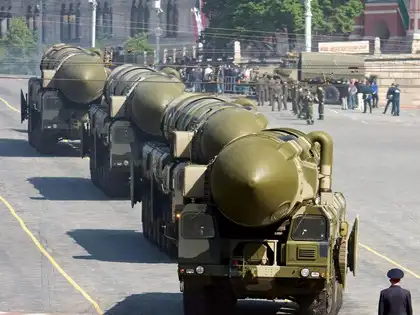Eighty years ago, the US dropped atomic bombs on Hiroshima and Nagasaki, killing many people. These actions ended World War II but also started a new era with nuclear weapons. Fast forward to 2025, and we see a new race for atomic power, not just from countries like Russia and China, but now influenced by the US trade war and President Trump’s threats to reduce US military support for its allies.
Countries across Asia are feeling uneasy. Japan and South Korea, which have relied on US protection for years, are now thinking about building their own nuclear weapons. Meanwhile, India and Pakistan continue to grow their nuclear arsenals, creating more tension in the already complicated situation in Kashmir.
President Trump claims that the US is unfairly providing protection to other countries while they benefit more economically. He may have a point but seems to forget how serious the issue of nuclear weapons is. After the bombings in Japan, US leaders aimed to prevent nuclear conflicts and reduce the number of countries with nuclear bombs. Thanks to treaties and agreements, only nine countries currently have nuclear weapons.
However, Trump’s comments give a new meaning to nuclear power in Asia. In 2016, he suggested that Japan and South Korea might need to develop their own nuclear capabilities. In a 2024 survey, most South Koreans agreed with this idea. If South Korea goes nuclear, Japan might follow suit, which could trigger a series of countries wanting nuclear arms.
Even in Southeast Asia, usually a safe area, nuclear threats are on the rise. The 1995 Treaty of Bangkok aimed to keep that region free of nuclear weapons, but if bigger nations start building more bombs, smaller countries may feel the need to follow suit.
The US must re-engage with its Asian allies and reassure them about their security. In 2023, under President Biden, a Nuclear Consultative Group was formed with South Korea to address these fears. Efforts like this should also involve Japan to maintain US support as the best defense option. The US still has a chance to stabilize global security and shouldn’t let China take over this role. In 2025, trust in the US is fading, making it essential for America to rebuild these relationships not just for Asia, but for itself too.





Leave a Reply